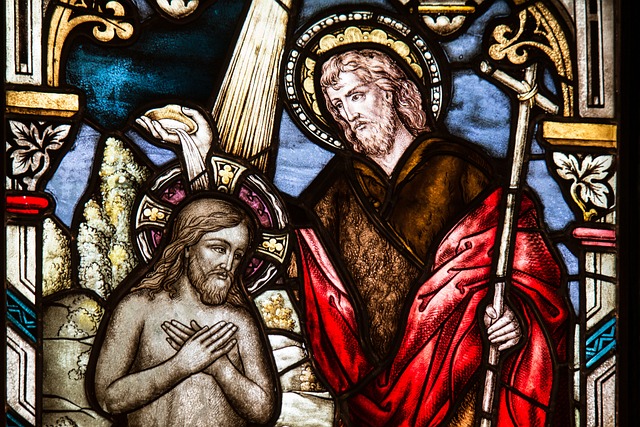Introduction: Catholic Church Baptism is a sacrament of initiation into the Christian faith that is considered essential for salvation. It is a ritual cleansing that symbolizes the washing away of original sin and the beginning of a new life in Christ. In this article, we will explore the significance of baptism in the Catholic Church, the requirements for receiving the sacrament, and the role of godparents in the baptismal process.
Table of Contents
Importance of Baptism in the Catholic Church
Baptism is a significant sacrament in the Catholic Church, marking the beginning of a person’s journey of faith. It is a rite of initiation that welcomes individuals into the Christian community and symbolizes their cleansing from sin and rebirth into a new life in Christ. In the Catholic tradition, baptism is considered necessary for salvation, as it is through baptism that one becomes a member of the Church and receives the grace of God.
The importance of baptism in the Catholic Church cannot be overstated. It is the gateway to the other sacraments and is seen as the foundation of the Christian life. Through baptism, individuals are united with Christ and become part of his body, the Church. This unity with Christ is symbolized by the pouring of water over the person’s head, which represents the washing away of sin and the gift of new life in Christ.
Baptism is also a sacrament of initiation, marking the beginning of a person’s journey of faith. It is through baptism that individuals are welcomed into the Christian community and are given the grace to live out their faith in the world. Baptism is a sign of God’s love and mercy, as it is through baptism that individuals are forgiven of their sins and are made new in Christ.
In the Catholic Church, baptism is typically administered to infants, as it is believed that baptism removes the stain of original sin and bestows the grace of God upon the child. However, baptism can also be received by adults who have not been baptized as infants. In either case, baptism is a sacrament that is meant to be received with faith and openness to God’s grace.
The sacrament of baptism is typically administered by a priest or deacon, who pours water over the person’s head while invoking the name of the Father, Son, and Holy Spirit. This act of pouring water symbolizes the cleansing of sin and the gift of new life in Christ. After the water is poured, the person is anointed with chrism oil, which symbolizes the sealing of the Holy Spirit and the person’s incorporation into the body of Christ.
After receiving baptism, individuals are called to live out their faith in the world and to grow in their relationship with God. This includes participating in the life of the Church, receiving the other sacraments, and living a life of prayer and service to others. Baptism is not just a one-time event, but a lifelong commitment to following Christ and living out the Gospel in our daily lives.
In conclusion, baptism is a vital sacrament in the Catholic Church that marks the beginning of a person’s journey of faith. It is through baptism that individuals are united with Christ, welcomed into the Christian community, and given the grace to live out their faith in the world. Baptism is a sign of God’s love and mercy, and it is a sacrament that is meant to be received with faith and openness to God’s grace. So if you or someone you know is considering baptism in the Catholic Church, know that it is a beautiful and meaningful sacrament that will mark the beginning of a new life in Christ.
History and Traditions of Catholic Church Baptism
Are you considering having your child baptized in the Catholic Church? Or maybe you’re just curious about the history and traditions of Catholic Church baptism. Either way, you’ve come to the right place! In this article, we’ll cover everything you need to know about Catholic Church baptism.
First, let’s talk about the history of baptism in the Catholic Church. Baptism has been a central sacrament in the Catholic Church since its inception. It is considered the gateway to the other sacraments and is seen as a necessary step in the journey of faith. The practice of baptism dates back to the time of Jesus, who was baptized by John the Baptist in the Jordan River. Since then, baptism has been an essential part of the Catholic Church’s teachings and traditions.
In the Catholic Church, baptism is typically performed on infants, although adults can also be baptized if they have not already received the sacrament. The ritual involves the pouring of water over the head of the person being baptized, while the priest recites prayers and blessings. This act symbolizes the washing away of sin and the initiation into the Christian faith.
One of the key aspects of Catholic Church baptism is the concept of original sin. According to Catholic doctrine, all humans are born with original sin, inherited from Adam and Eve. Through baptism, this original sin is washed away, and the individual is welcomed into the community of believers. This is why baptism is often referred to as a “rebirth” or a “new beginning.”
Another important aspect of Catholic Church baptism is the role of godparents. Godparents are chosen by the parents of the child being baptized and play a significant role in the child’s spiritual upbringing. They are responsible for helping the child grow in their faith and guiding them on their journey as a Christian. Godparents are also present during the baptism ceremony and make promises to support the child in their faith.
In addition to the spiritual significance of baptism, there are also practical considerations to keep in mind. For example, in order to have a child baptized in the Catholic Church, the parents must be practicing Catholics and members of a parish. They must also attend baptismal preparation classes to ensure they understand the significance of the sacrament and their responsibilities as parents.
Overall, Catholic Church baptism is a beautiful and meaningful sacrament that marks the beginning of a person’s journey in the Christian faith. It is a time of celebration and joy, as the individual is welcomed into the community of believers and receives the grace of God. Whether you are considering having your child baptized or simply want to learn more about this important sacrament, we hope this article has provided you with valuable information. Remember, baptism is not just a ritual – it is a sacred moment that signifies a new beginning in the life of the believer.
Sacramental Significance of Baptism in Catholicism

Baptism is one of the most important sacraments in the Catholic Church. It is the first sacrament that a person receives, marking their entry into the Christian community. Baptism is a sacrament of initiation, along with Confirmation and Eucharist, that lays the foundation for a person’s life as a follower of Christ.
In the Catholic Church, baptism is seen as a sacramental sign of God’s grace and love. It is through baptism that a person is cleansed of original sin and welcomed into the Church. Baptism is also a symbol of new life, as the person being baptized is reborn in Christ and becomes a member of the Body of Christ.
The sacramental significance of baptism in Catholicism is profound. It is a visible sign of God’s invisible grace, a moment when the Holy Spirit descends upon the person being baptized and fills them with God’s love. Baptism is a moment of transformation, a moment when a person is united with Christ and becomes a part of the Church.
Baptism is also a sacrament of faith. It is a moment when a person publicly professes their belief in God and their desire to follow Christ. Through baptism, a person becomes a disciple of Christ and commits to living a life of faith and love.
Baptism is a sacrament that is celebrated with great joy in the Catholic Church. It is a moment of celebration for the entire Christian community, as they welcome a new member into the Church. Baptism is a time for family and friends to come together and celebrate the gift of new life in Christ.
Baptism is also a sacrament that is steeped in tradition. The Catholic Church has a rich history of baptizing its members, dating back to the time of Jesus. Baptism has been an integral part of the Church’s life for centuries, and it continues to be a central sacrament in the life of the Church today.
In the Catholic Church, baptism is typically performed by a priest or deacon. The sacrament involves the pouring of water over the person’s head, while the priest or deacon says the words, “I baptize you in the name of the Father, and of the Son, and of the Holy Spirit.” This simple act of pouring water and saying these words is a powerful symbol of God’s love and grace.
Baptism is a sacrament that is open to people of all ages. While most baptisms in the Catholic Church are performed on infants, adults can also be baptized. In fact, the Catholic Church encourages adults who have not been baptized to receive the sacrament of baptism as a way of entering into the Christian community.
In conclusion, baptism is a sacrament of great significance in the Catholic Church. It is a moment of grace, faith, and tradition that marks a person’s entry into the Christian community. Baptism is a sacrament that is celebrated with joy and reverence, as the person being baptized is welcomed into the Church and begins their journey as a disciple of Christ.
Role of Godparents in Catholic Church Baptism
Are you considering having your child baptized in the Catholic Church? If so, you may be wondering about the role of godparents in this important sacrament. Godparents play a significant role in the baptism ceremony and in the spiritual life of the child being baptized.
In the Catholic Church, godparents are chosen to help guide and support the child in their faith journey. They are responsible for helping the child grow in their relationship with God and the Church. Godparents are often chosen because of their strong faith and commitment to living out the teachings of the Church.
One of the primary roles of godparents is to serve as a spiritual mentor to the child. They are there to pray for the child, offer guidance and support, and help them understand the teachings of the Church. Godparents are also responsible for setting a good example for the child by living out their own faith in a visible and tangible way.
Godparents are also called to be a source of encouragement and support for the child as they grow in their faith. They are there to provide guidance and wisdom, answer questions, and offer a listening ear when needed. Godparents play a crucial role in helping the child navigate the challenges and joys of their spiritual journey.
In addition to their role in the child’s spiritual life, godparents also have specific responsibilities during the baptism ceremony itself. Godparents are required to make a profession of faith on behalf of the child, promising to help raise them in the Catholic faith. They also participate in the baptismal liturgy by holding the child during the ceremony and assisting the priest as needed.
Choosing godparents for your child’s baptism is an important decision that should not be taken lightly. It is essential to select individuals who are committed to living out their faith and who will be a positive influence on the child. Godparents should be individuals who will take their role seriously and who will be actively involved in the child’s spiritual development.
When selecting godparents, it is important to consider individuals who have a strong faith and who are actively involved in the Catholic Church. Godparents should be individuals who will be a positive influence on the child and who will help them grow in their relationship with God. It is also important to choose godparents who will be actively involved in the child’s life and who will take their role seriously.
In conclusion, godparents play a crucial role in the Catholic Church baptism ceremony. They are responsible for helping the child grow in their faith, providing guidance and support, and serving as a spiritual mentor. Choosing godparents for your child’s baptism is an important decision that should not be taken lightly. It is essential to select individuals who are committed to living out their faith and who will be a positive influence on the child. Godparents should be individuals who will take their role seriously and who will be actively involved in the child’s spiritual development.
Common Misconceptions about Catholic Church Baptism
When it comes to Catholic Church baptism, there are often many misconceptions that people have. It’s important to understand the truth behind this important sacrament in order to fully appreciate its significance. In this article, we will debunk some common myths and provide you with the information you need to know about Catholic Church baptism.
One common misconception about Catholic Church baptism is that it is simply a symbolic gesture. In reality, baptism is a sacrament that holds deep spiritual significance for Catholics. It is believed to cleanse the soul of original sin and initiate the individual into the Christian faith. Baptism is not just a ritual, but a sacred act that marks the beginning of a person’s journey with God.
Another misconception is that only infants can be baptized in the Catholic Church. While it is true that infant baptism is common in the Catholic tradition, adults can also be baptized. In fact, many adults choose to be baptized later in life as a way to reaffirm their faith and commitment to God. Baptism is a personal decision that can be made at any age, as long as the individual is willing to embrace the teachings of the Catholic Church.
Some people believe that baptism is a one-time event that does not need to be repeated. While the sacrament of baptism is typically only administered once, there are certain circumstances in which a person may choose to be baptized again. For example, if someone was baptized in a non-Catholic church and later decides to convert to Catholicism, they may choose to be baptized in the Catholic Church as a way to fully embrace their new faith.
There is also a misconception that baptism is only for those who are already committed to the Catholic faith. In reality, baptism is a way for individuals to enter into the Catholic Church and begin their journey of faith. It is not necessary to have a deep understanding of Catholic teachings in order to be baptized. The sacrament of baptism is a way for individuals to receive God’s grace and become part of the Christian community.
Another common myth is that baptism is only for those who are “perfect” or without sin. In reality, baptism is for everyone, regardless of their past sins or shortcomings. The sacrament of baptism is a way for individuals to be cleansed of their sins and start fresh in their relationship with God. It is a way for people to receive God’s forgiveness and begin a new chapter in their spiritual journey.
In conclusion, Catholic Church baptism is a sacred sacrament that holds deep spiritual significance for Catholics. It is not just a symbolic gesture, but a way for individuals to enter into the Christian faith and receive God’s grace. Baptism is not limited to infants, but can be received by individuals of any age who are willing to embrace the teachings of the Catholic Church. It is a personal decision that can be made at any time, and is a way for individuals to start fresh in their relationship with God.
Conclusion
Catholic Church baptism is a sacrament that initiates individuals into the Christian faith, cleanses them of original sin, and marks them as members of the Church. It is typically performed on infants, but can also be administered to adults who wish to convert to Catholicism. The ceremony involves the pouring of water over the individual’s head while the priest recites prayers. Baptism is considered a necessary step towards salvation in the Catholic Church.
For licensing reasons, we must provide the following notice: This content was created in part with the help of an AI.


